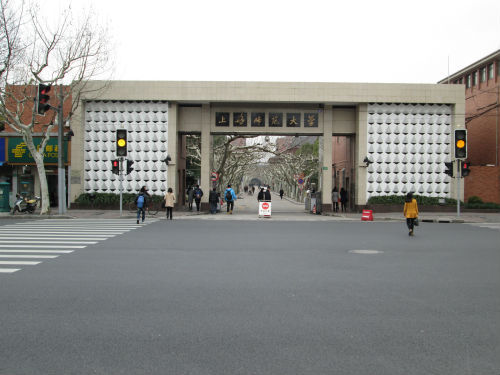
Shanghai is the largest city in China; מי בחינוך אינו מודע לעובדה כי תלמידי העיר הזאת סיימה בחלק העליון של תרשימים פיז"ה 2009 מבחן? מאז, educators from all over the world have travelled to this dynamic city to better understand the strategies that have kept Shanghai at the forefront of education reform. The first thing you note as an observer in Shanghai is that education success has much to do with societal and family beliefs in the immense value of being well-educated. China has a long tradition of respect for education. Exams are still a very important part of the learning process but what else are educators working on to improve the students’ education experience and promote a 21st century approach to learning? On a recent trip to the city, I had the pleasure of meeting with Xu Jinjie, (Lecturer at Shanghai Normal University) and Zhu Xiaohu (PHD Candidate Assistant Professor – Institute for Basic Education Research, האקדמיה שנחאי למדעי החינוך) to discuss some of the ways China is combining the best of tradition with innovation.
One of the key headlines we see on Chinese Education in the West is that Chinese students excel in the global standardized tests. יש, עם זאת, some writers that find deficiencies in China’s education system. Do you think these criticisms are valid?
ג'ו Xiaohu: China’s education system is always reforming. לדוגמא, בPISA 2009, מצאנו סטודנטים סינים שאינם כמו שינון במתמטיקה. Most teachers don’t believe in rote learning and encourage students to be creative. But examinations have a thousand year old history in China. So it is deeply engrained in the culture. And I don’t believe that tests are always a bad thing. It is about the content of the test. We want to give students more chances and more choices when they take examinations. לדוגמא, we are now doing some work on this in Zhejiang province in Shanghai. It’s a pilot for a new student achievement assessment, which will be more about producing a portfolio.
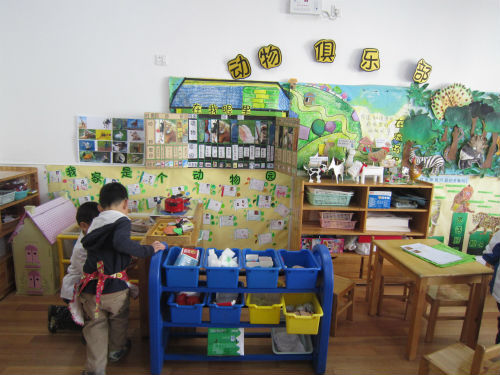
There are a lot of teachers around the world that would love to hear more about that.
שו ג'ינג'י: I think you have to consider this question of test reform in context, למרות ש. In the developed regions of China such as Shanghai, our government is starting to reconsider strict testing practices, but in the rural areas, doing well on strict testing is the only way for the poor children to proceed.
What do you think about the way technology continues to change the way students learn, which is allowing students more access to information anytime, anyplace, בכל מקום?
שו ג'ינג'י: We believe that basic knowledge and basic skills, even with the technology changing our world, are still key parts of school learning. Take for example, the multiplication tables, they are very special in China. Every student in primary school has to memorize them. Even though we know that they can calculate with a calculator or a computer, we ask our students to remember their multiplication tables. Some educators believe that this kind of mental calculation is the basis for higher mathematics learning. So it’s not just a skill, it’s a basic need for advanced learning. In addition to that, we emphasize students’ imagination and creative thinking skills. For example in primary school education, the Shanghai government asks that each school provide one half day each week to offer all kinds of activities for the students to choose from. We want to let students have time to explore their own interests and to make their own choices in learning, and so we give them chances to do that. But it can be difficult to evaluate and assess creativity.
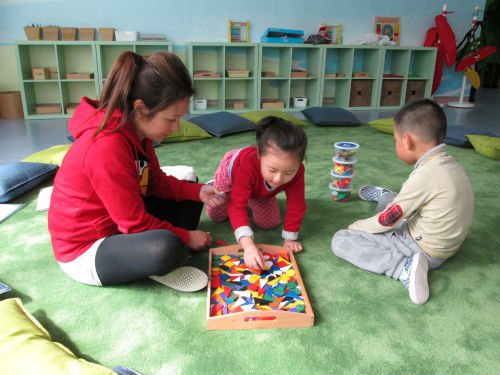
בארה"ב, there has been more focus recently on making sure preschool programs are available to all children. What support is currently being offered by the Chinese government to support universal preschool?
ג'ו Xiaohu: If you want to send your child to preschool, it’s easy! It’s not so expensive because most of the kindergartens are public here.
שו ג'ינג'י: מאז 2010, Shanghai has set up another hundred preschools and is expanding the scale of public preschools to assess and educate more kids from migrant labor force families. So our government really has put the right policies in place.
ג'ו Xiaohu: למעשה, the emphasis on preschool education in Shanghai now is not whether the children can or cannot go to the kindergarten. It is more about what should we teach the children in kindergarten. Several years ago, the preschool education was very similar to the primary school. In kindergarten, the children learned mathematics, Chinese and other academic subjects. But now we believe this is not good because the most important thing for preschool education is to allow students to develop good habits. Socialization versus academic knowledge should be the main emphasis.
When my children went to preschool I recall there were mothers who would get annoyed if there were no worksheets and then there were mothers who would get annoyed if there were too many worksheets! And this was naturally an ongoing debate between the parents.
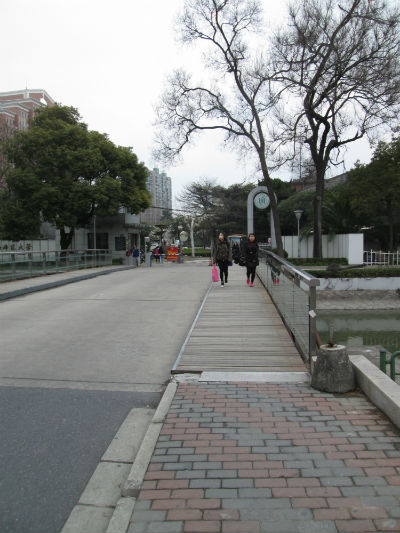
בואו נדבר קצת על השכלה גבוהה. יש מגמה ענקית של לימודים בחו"ל כאן בסין עם סטודנטים רבים שרוצים ללמוד במוסדות להשכלה גבוהה בארה"ב. אני תוהה מדוע יותר סטודנטים לא שוקלים את אפשרויות האוניברסיטאות להשכלה גבוהה בסין?
ג'ו Xiaohu: מאז ארצות הברית ואירופה הן מדינות מפותחות, אנחנו צריכים ללמוד ולהדביק אותם. הסינים צריכים להכיר את התרבות המערבית שכן היא מועילה לכלכלה שלנו ולאומה שלנו. אז סין חייבת להשתתף בעולם הזה, ואנחנו מאמינים שזה דבר טוב. אבל ככל שהכלכלה שלנו מתפתחת, we believe many more students will study abroad in China. The trend is already shifting now. אנשים רוצים ללמוד סינית מכיוון שזה גם נותן להם הזדמנויות טובות יותר להצליח בעסקים גלובליים.
שו ג'ינג'י: Our Ministry of Education in Beijing has already started to pay attention to this issue. Last year our center was authorized to undertake a program for the MOE – משרד החינוך – as to how to integrate the credit of learning between different education solutions that have been identified. לדוגמא, if a student studies in America for one year and then studies in China for the second year, we are in the process of figuring out how to recognize the learning credit in Shanghai. The government is thinking about this too that is the recognition of cross-cultural learning credits which promote the internationalization of higher education. Also there are various schools setting up alliances between nations, for example NYU Shanghai, and these schools are changing the landscape of higher education.
כן, students are being raised as global thinkers and so they won’t necessarily study in their own country for their entire academic career any longer. The value of those face-to-face experiences in other cultures is becoming ever more critical. Thank you both for your time.

(כל התמונות הן באדיבות C. M. רובין)
הצטרף אליי ולמנהיגי מחשבה מוכרת בעולם כולל סר מייקל ברבר (בריטניה), DR. מיכאל בלוק (ארה"ב), DR. ליאון בוטשטיין (ארה"ב), פרופסור קליי כריסטנסן (ארה"ב), DR. לינדה דרלינג-Hammond (ארה"ב), DR. MadhavChavan (הודו), פרופ 'מיכאל Fullan (קנדה), פרופ 'הווארד גרדנר (ארה"ב), פרופ 'אנדי הארגריבס (ארה"ב), פרופ 'איבון הלמן (הולנד), פרופ 'קריסטין Helstad (נורווגיה), ז'אן הנדריקסון (ארה"ב), פרופ 'רוז Hipkins (ניו זילנד), פרופ 'קורנליה הוגלנד (קנדה), הכבוד ג'ף ג'ונסון (קנדה), גברת. שנטל קאופמן (בלגיה), DR. EijaKauppinen (פינלנד), מזכיר המדינה TapioKosunen (פינלנד), פרופ 'דומיניק לפונטיין (בלגיה), פרופ 'יו לאודר (בריטניה), לורד קן מקדונלד (בריטניה), פרופ 'ג'ף מאסטרס (אוסטרליה), פרופ 'בארי McGaw (אוסטרליה), שיב נדאר (הודו), פרופ 'R. נטריגין (הודו), DR. PAK NG (סינגפור), DR. דניז אפיפיור (ארה"ב), שרידהר ךאג'גופלן (הודו), DR. דיאן ראוויטש (ארה"ב), ריצ'רד וילסון ריילי (ארה"ב), סר קן רובינסון (בריטניה), פרופ Pasi Sahlberg (פינלנד), פרופ Manabu סאטו (יפן), אנדריאס שלייכר (PISA, OECD), DR. אנתוני סלדון (בריטניה), DR. דוד שפר (ארה"ב), DR. קירסטן Immersive Are (נורווגיה), קנצלר סטיבן ספאן (ארה"ב), איב Theze (LyceeFrancais ארה"ב), פרופ 'צ'רלס Ungerleider (קנדה), פרופ 'טוני וגנר (ארה"ב), סר דייוויד ווטסון (בריטניה), פרופסור דילן Wiliam (בריטניה), DR. מארק Wormald (בריטניה), פרופ 'תיאו Wubbels (הולנד), פרופ 'מייקל יאנג (בריטניה), ופרופ 'Minxuan ג'אנג (סין) כפי שהם לחקור שאלות חינוך תמונה הגדולות שכל המדינות מתמודדות היום.
גלובל החיפוש לחינוך עמוד קהילה
C. M. רובין הוא המחבר שתי סדרות מקוונות רבים קוראות שלהיא קיבלה 2011 הפרס אפטון סינקלר, “גלובל החיפוש לחינוך” ו “איך וויל אנחנו קראו?” היא גם מחברם של שלושה ספרים רבי מכר, כולל אליס בארץ הפלאות Real, הוא המוציא לאור של CMRubinWorld, והוא משבש קרן עמית.
עקוב C. M. רובין בטוויטר: www.twitter.com/@cmrubinworld


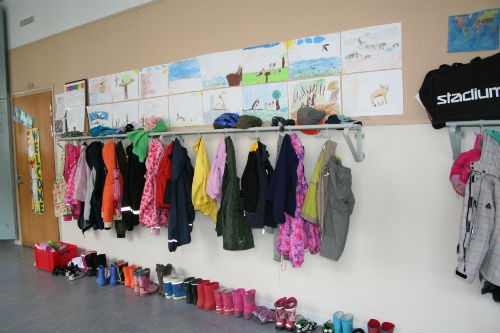
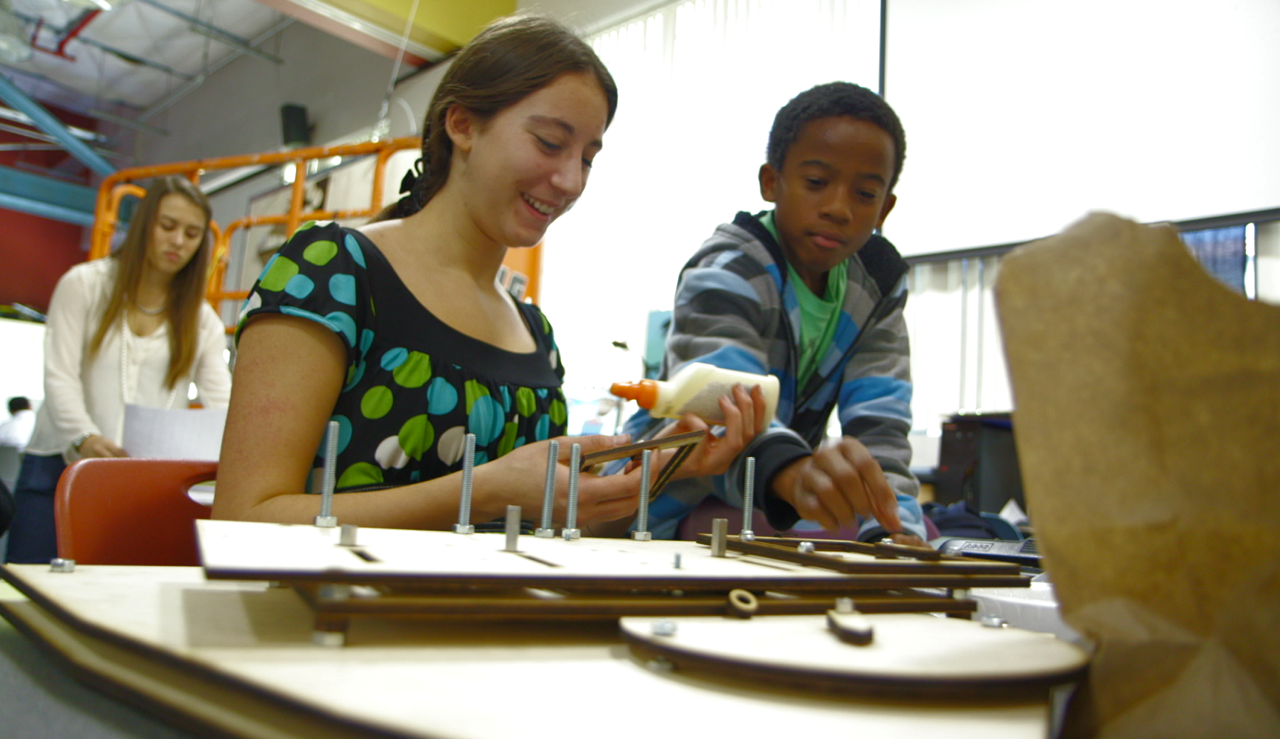
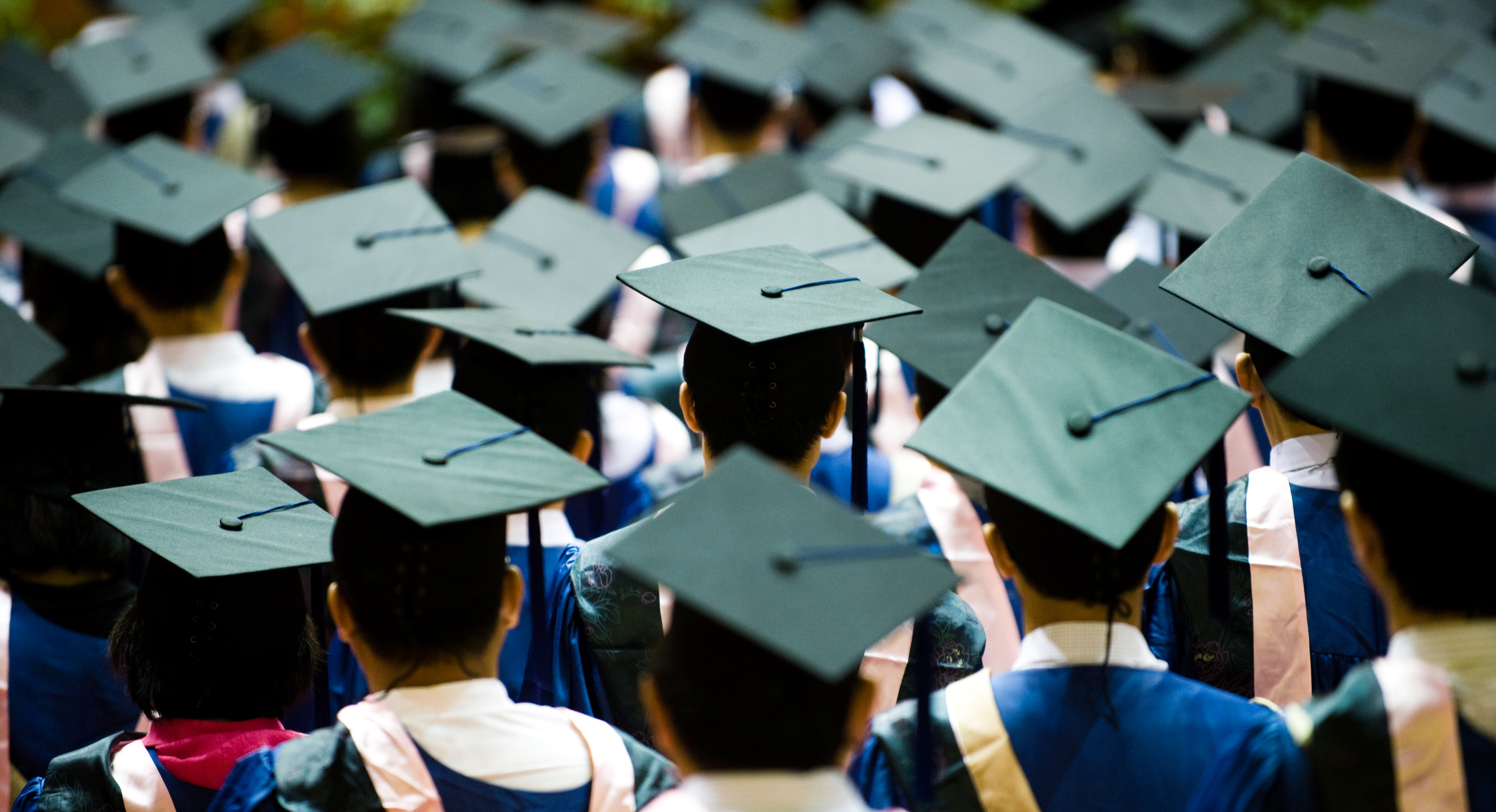
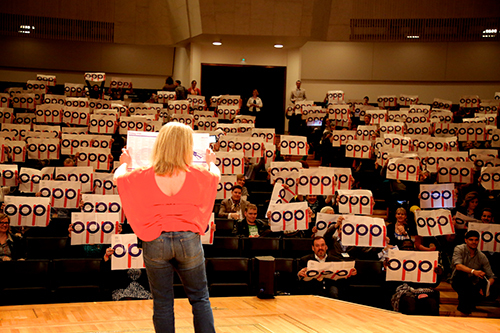
תגובות אחרונות